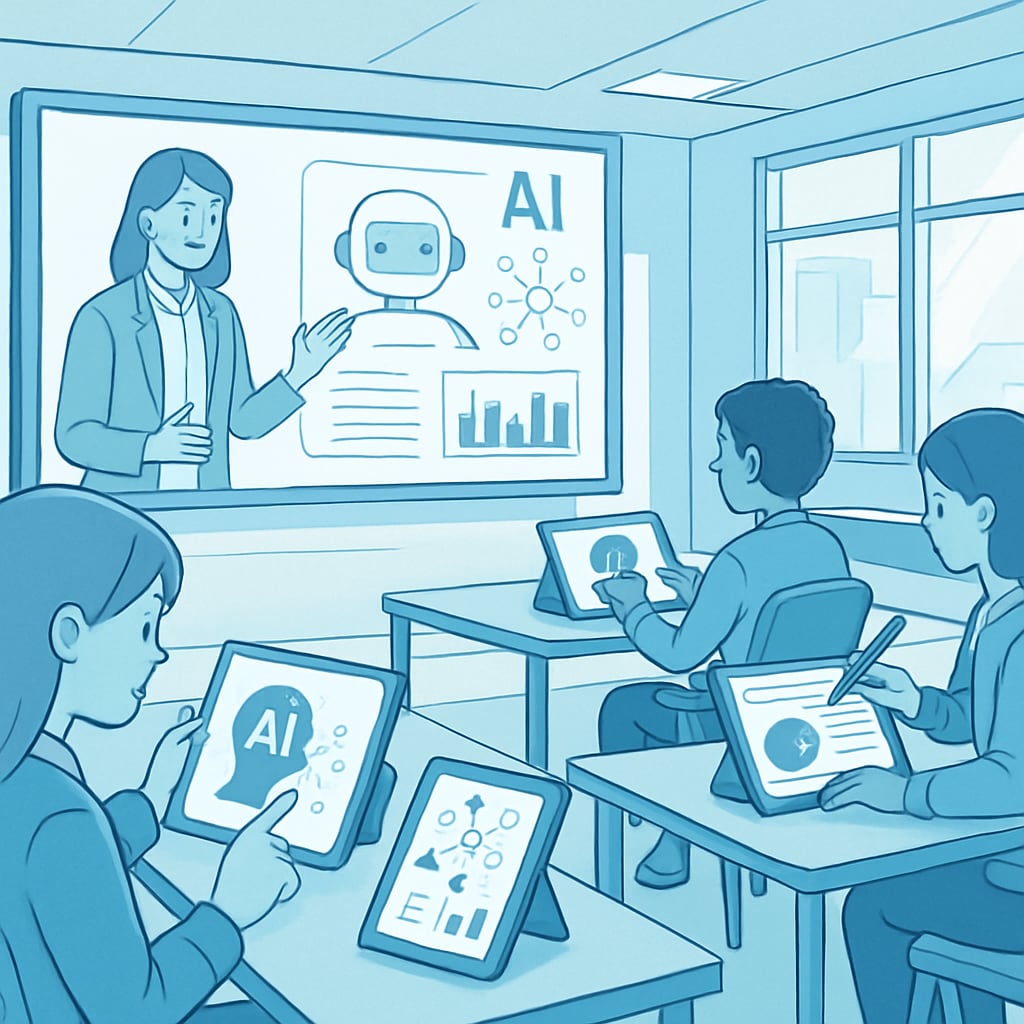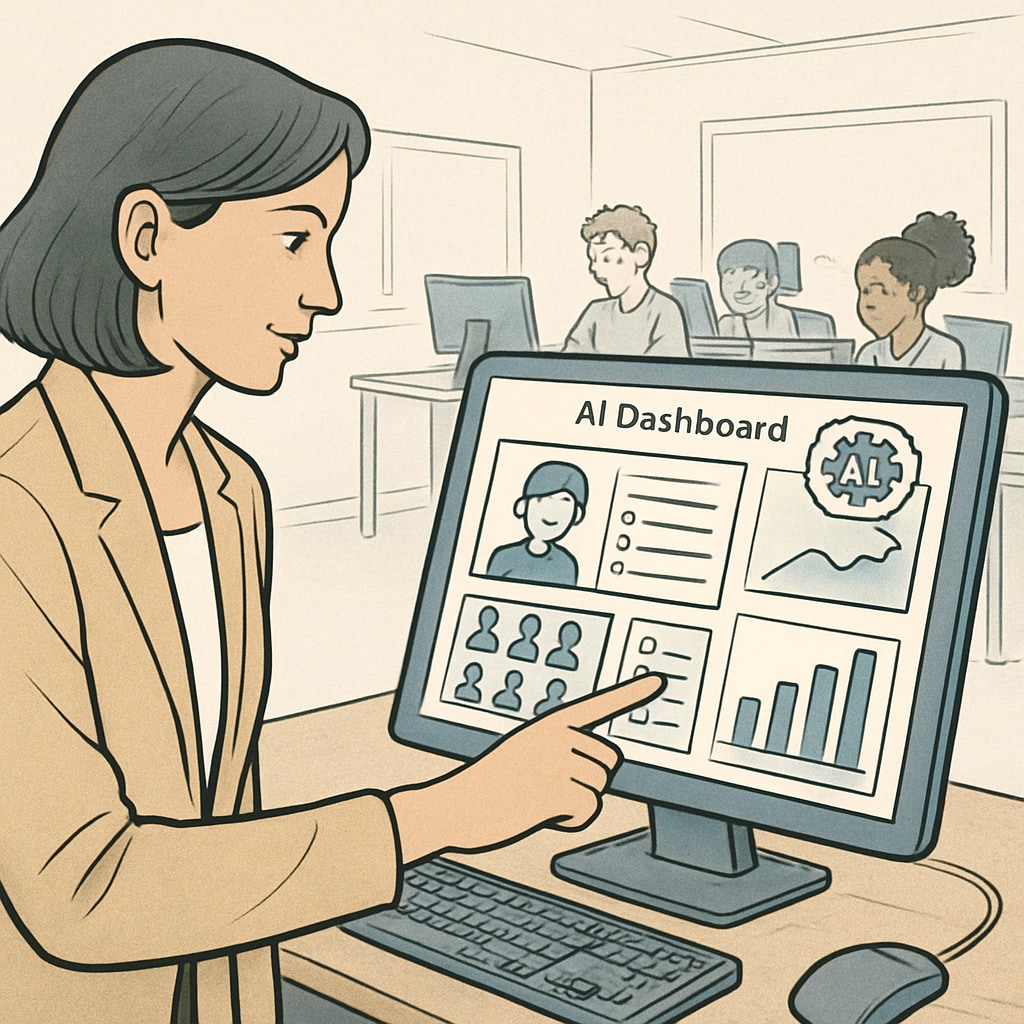Artificial intelligence (AI) is revolutionizing K12 education, with profound implications for personalized learning, teaching methods, and assessment strategies. Over the next 5-10 years, these advancements will reshape the classroom experience for students and educators alike. By integrating AI-driven tools, schools can create dynamic, student-centered environments that adapt to individual learning needs and foster a more inclusive and equitable education system. In this article, we explore five transformative ways AI is impacting the future of K12 education.
Personalized Learning Powered by Artificial Intelligence
One of the most significant contributions of AI to education is its ability to enable personalized learning. Traditional classrooms often struggle to meet the diverse needs of students due to limited resources and time. However, AI-powered platforms, such as adaptive learning software, can analyze student performance in real time and tailor content to their individual strengths and weaknesses. For example, systems like DreamBox and Khan Academy use machine learning algorithms to adjust lesson difficulty and provide instant feedback, ensuring that students progress at their own pace.
As a result, personalized learning not only improves academic outcomes but also boosts student engagement and confidence. Furthermore, AI tools can identify learning gaps early, offering targeted interventions to prevent students from falling behind.

The Evolving Role of Teachers in an AI-Enhanced Classroom
While AI is transforming education, it is not replacing teachers; instead, it is redefining their roles. In an AI-enhanced classroom, teachers serve as facilitators and mentors rather than sole knowledge providers. By automating routine tasks such as grading and administrative work, AI allows educators to focus more on fostering critical thinking, creativity, and emotional intelligence among students.
Moreover, AI tools can provide teachers with actionable insights into student performance, enabling them to offer more targeted support. For instance, platforms like Edmodo and Classcraft empower educators to track student progress and customize their teaching strategies. This partnership between technology and teachers ensures a more holistic and effective learning experience.
Innovative Assessment Methods Through AI
Traditional assessment methods, such as standardized tests, often fail to capture the full spectrum of a student’s abilities. AI offers innovative alternatives by enabling formative assessments that are dynamic and continuous. For example, AI-driven tools like Grammarly and Turnitin provide immediate feedback on writing assignments, helping students refine their skills iteratively.
Additionally, AI can analyze complex data sets to evaluate critical thinking, problem-solving, and collaboration skills. This shift toward competency-based assessment aligns with the demands of the modern workforce, ensuring that students are better prepared for real-world challenges.

Bridging Educational Inequities with AI
AI has the potential to bridge educational inequities by providing access to high-quality learning resources for underserved communities. Online platforms powered by AI can deliver free or affordable educational content, breaking down barriers related to geography, language, and socioeconomic status. For instance, initiatives like India’s Diksha platform use AI to offer multilingual resources tailored to local curricula.
Additionally, AI-enabled translation tools, such as Google Translate, allow students from non-native English-speaking backgrounds to access educational materials in their preferred language, fostering inclusivity and diversity.
Preparing Students for an AI-Driven Future
As AI continues to shape various industries, equipping students with AI literacy is essential. Schools must integrate AI-related topics into their curricula, covering areas like machine learning, ethics, and data privacy. Programs such as MIT’s Scratch and Microsoft’s AI for Good initiative introduce students to coding and AI concepts, preparing them for careers in an increasingly AI-driven world.
Furthermore, fostering critical thinking and ethical reasoning will help students navigate the societal implications of AI and use technology responsibly. By embracing AI in education, schools can empower the next generation to thrive in a rapidly evolving landscape.
In conclusion, artificial intelligence is poised to transform K12 education in remarkable ways. From personalized learning and teacher empowerment to innovative assessments and equitable access, AI promises a brighter, more inclusive future for students worldwide. As educators and parents, it is crucial to understand and adapt to these changes, ensuring that the benefits of AI are maximized for all learners.
Readability guidance: This article uses concise paragraphs, clear subheadings, and illustrative examples to ensure a high level of readability. Lists and images enhance comprehension, while transitional phrases ensure smooth flow between ideas. The balance between active and passive voice maintains clarity and engagement.


